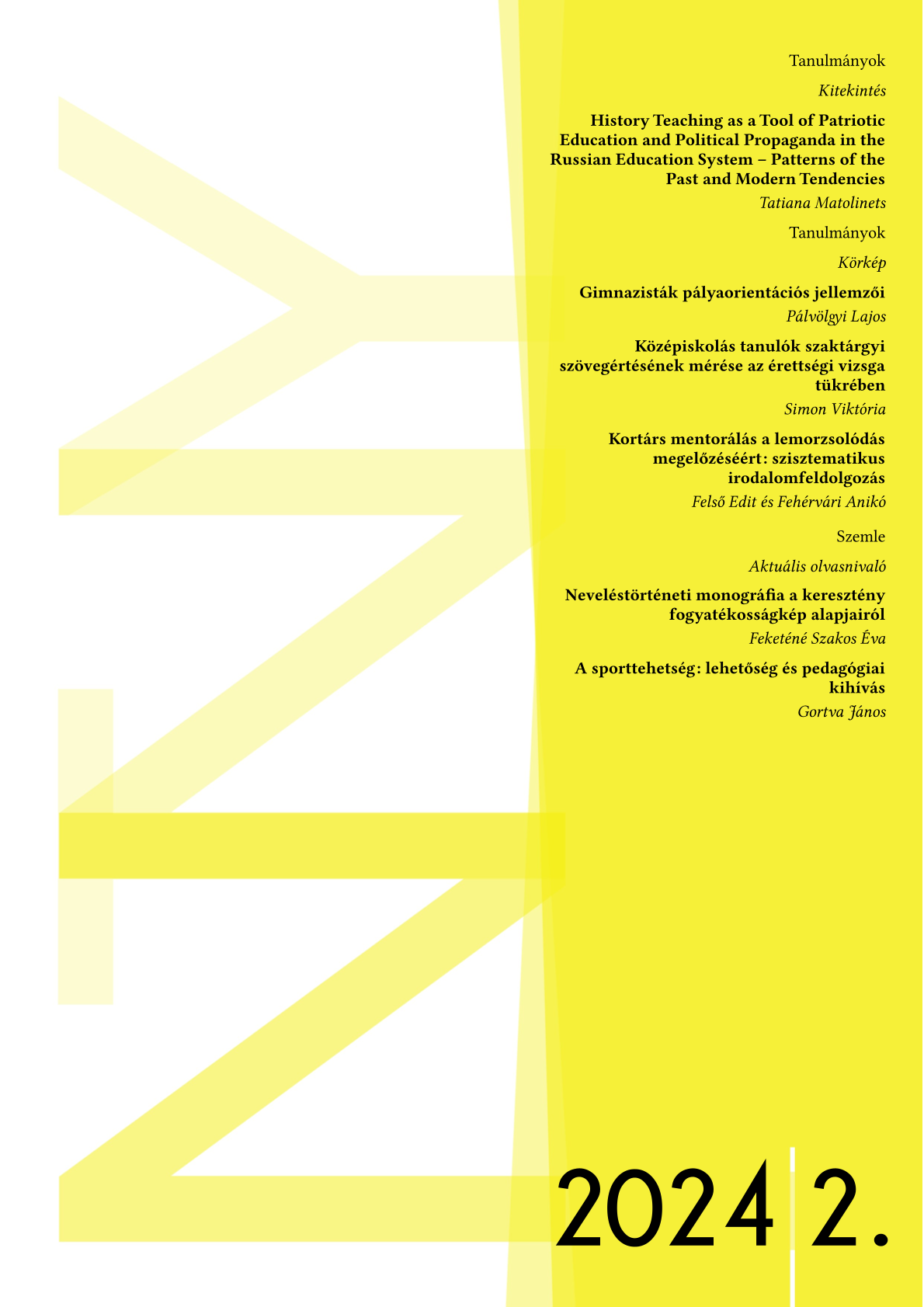Abstract
The decision on further education and career choice is a significant milestone in the life of every high school student, usually preceded by a long period of preparation and searching for a direction. With its practical implications, this study looks at the characteristics of the career orientation process that are directly related to the students' person. These findings provide a practical understanding that can be used to support the process effectively. In the second part of the study, we examine some of the more important career orientation characteristics among secondary school students, with a particular focus on their relationship with variables such as students' gender and grade, as well as their school's average OKM competency assessment score and average family background index score. The sample is nationally non-representative (N=1137). In addition to a self-developed set of questions, the Rosenberg Self-Esteem Scale (RSES, Rosenberg, 1965) and the Career Factors Inventory (CFI, Chartrand et al., 1990) were used. The study's findings challenge the hypothesis that as the years of high school progress, more advantageous values of career orientation variables would be found in the higher grades, indicating that more self-awareness and career orientation support activities would be needed during the high school years, improving the effectiveness of career orientation and strengthening its processual nature. This practical knowledge of the relationships between career orientation characteristics can help design educational interventions. The outliers of each variable that need more attention can be used to identify students who need more intensive career guidance support. Cluster analysis has resulted in the emergence of four career orientation types of students: confident, balanced, anxious, and indecisive. Based on the characteristics of these types, a differentiated support strategy can be proposed for each of them.

